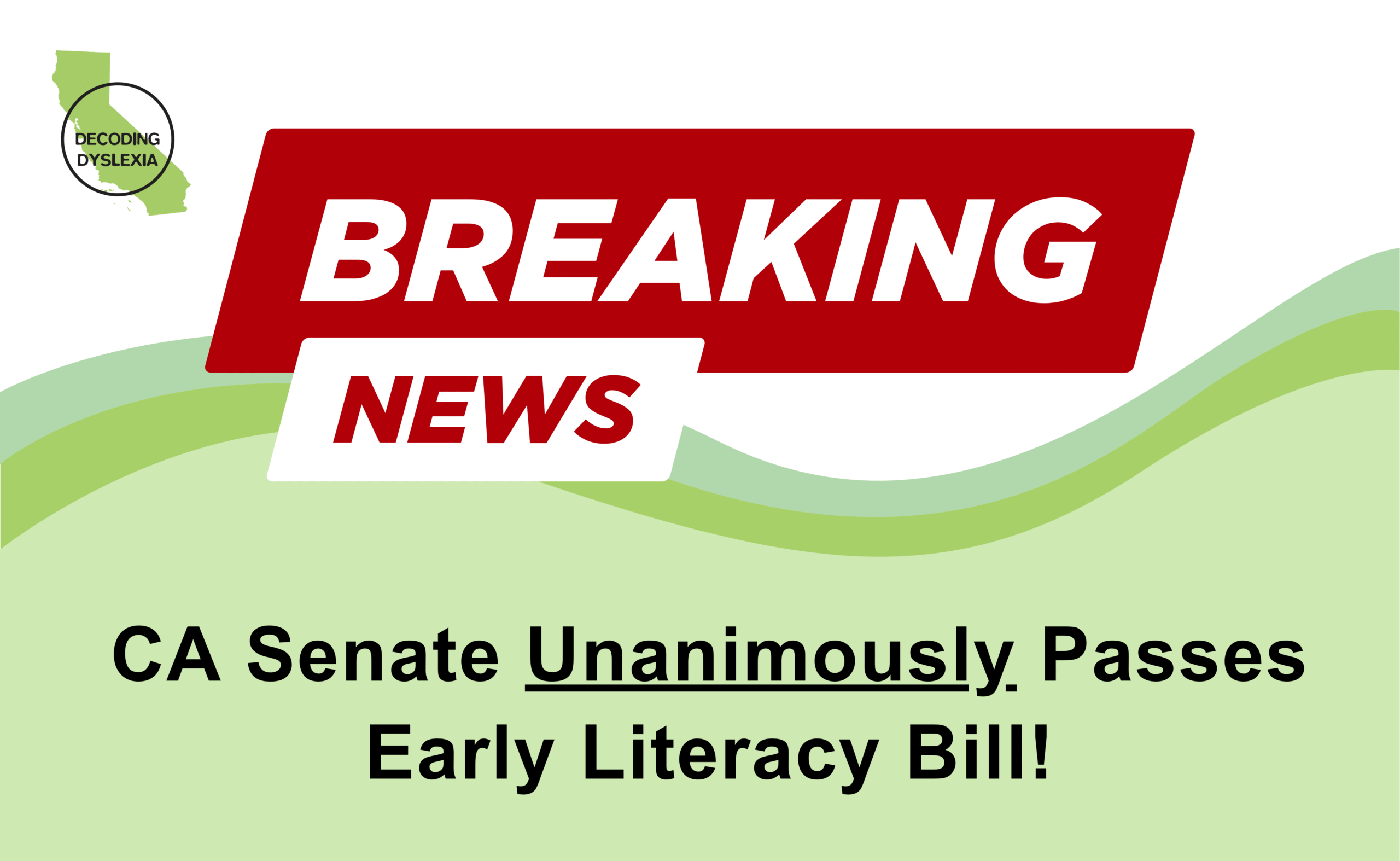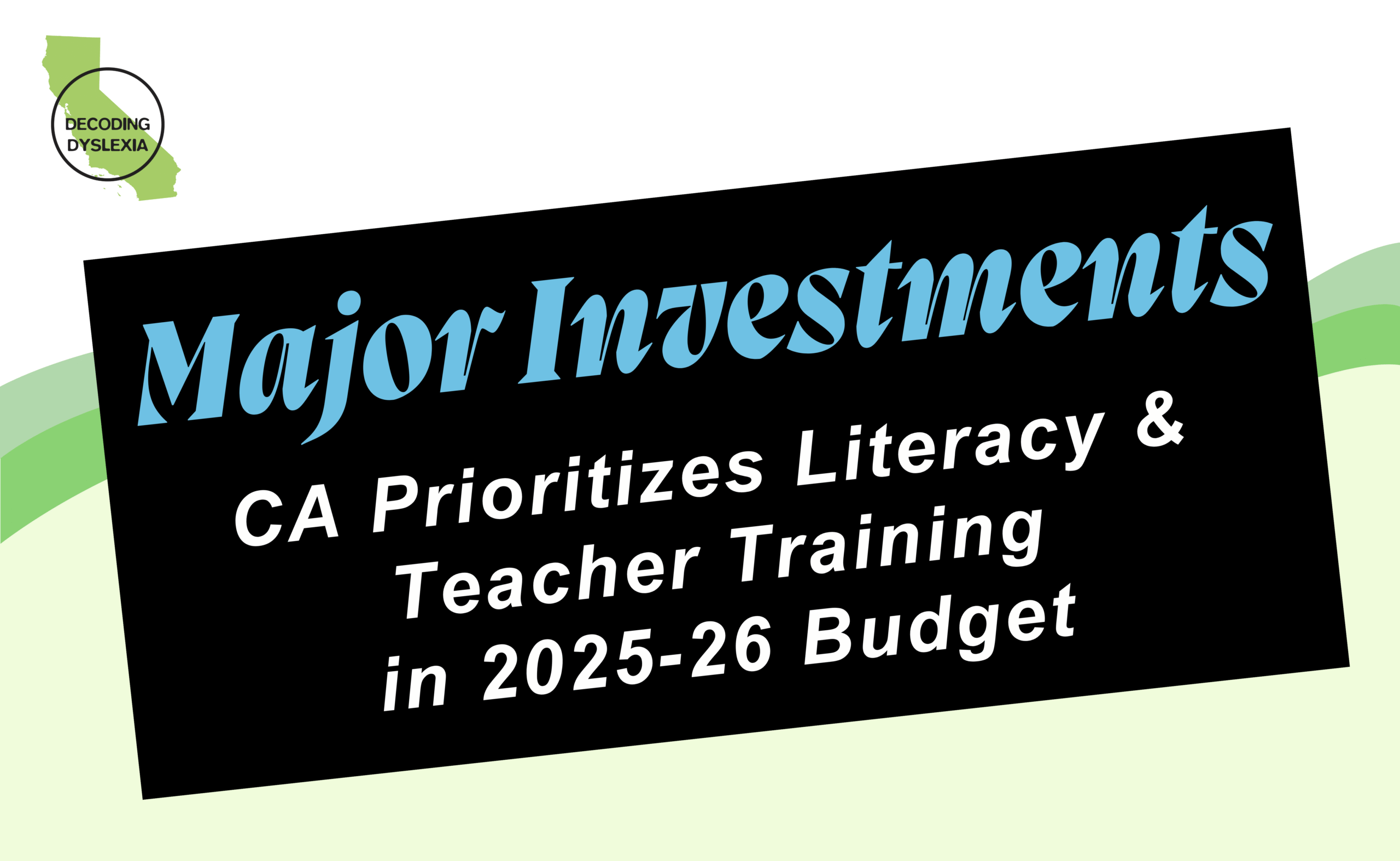Bill Now Heads to Governor’s Desk for Final Approval
On September 12, the California Senate voted 38-0 to pass Assembly Bill 1454, a landmark early literacy bill that is a critical step towards improving literacy outcomes for California’s 5.8 million public school students. The bill now moves to Governor Gavin Newsom’s desk for his signature.
AB 1454 is co-authored by Senators Ben Allen (D-Santa Monica), Rosilicie Ochoa Bogh (R-Yucaipa), Thomas J. Umberg (D-Santa Ana), Dr. Akilah Weber Pierson (D-San Diego), Scott Wiener (D-San Francisco), and Assemblymembers Dawn Addis (D-Morro Bay), Mia Bonta (D-Oakland), Josh Hoover (R-Folsom), and Dr. Darshana Patel (D-San Diego County). The bill has won broad support from over 90 education and social justice groups statewide—including Decoding Dyslexia CA, EdVoice, the NAACP CA/HI State Conference, and Families In Schools—working together to transform how California students learn to read.
California has long faced some of the nation’s widest reading achievement gaps, especially for English learners and low-income Black and Latino students. Today, only 4 in 10 third graders read at grade level. AB 1454 plays a critical role in closing those gaps by requiring schools to use instructional materials aligned with decades of research on how children learn to read. The bill also updates standards for administrator and reading specialist preparation programs to include training on effective means of teaching literacy.
Earlier this year, Governor Newsom signed the 2025-26 Budget, which includes $200 million to be allocated for in-service teacher training in effective means for teaching literacy. The combination of investments in both teacher training and instructional materials aligned to the reading research consensus fill an urgent need to support teachers as they meet a new requirement underway in California schools, screening all K-2 students for risk of reading difficulties, including dyslexia.
Screening for Risk
Starting this school year (2025–26), all California schools must begin using short, universal screeners in kindergarten through second grade. These are quick “check-ups” that help identify which students may be at risk for reading difficulties, including dyslexia. Screeners don’t diagnose, but they give teachers important early warnings about who might need extra support.
Training Teachers to Respond
Screening only works if educators know what to do next. That’s where Assembly Bill 1454 and Governor Newsom’s 2025 budget come in. Together, they direct more than $200 million toward training teachers in the science of reading and equipping them with the instructional tools they need to support students flagged for extra support.
Why This Matters
When screeners and teacher training work hand in hand, the system shifts from reacting after students fall behind to intervening early. Screeners point to who needs help, teacher training ensures educators know how to provide it, and this last piece will ensure they have the tools to do so.
The combined efforts of AB 1454 and the 2025-26 Budget investments open the door to long-overdue change in how California students are taught to read. With Senate passage complete, AB 1454 now awaits Governor Newsom’s signature – a big step towards improving reading instruction for millions of California students.
As always, please encourage your community – families, educators, and advocates – to sign up for DDCA emails to stay informed on all efforts to transform literacy outcomes in California.


